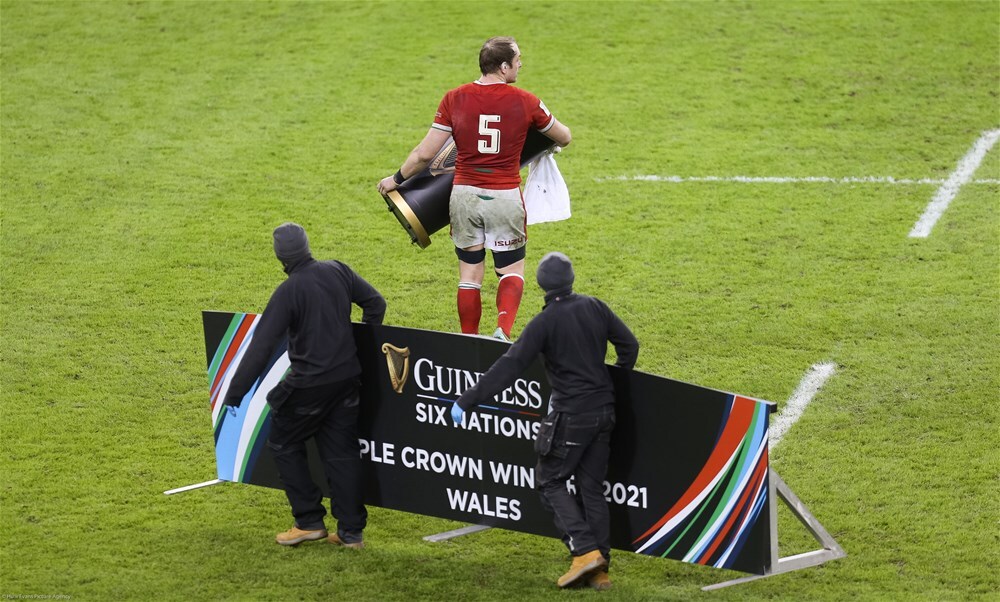Wales face France in their final match this Saturday, on the verge of a what, for some, would be a surprise win
HEADING into the 2021 Six Nations Championship, Wales were reeling from their dismal Autumn Internationals campaign and anti-climatic end to last year’s Six Nations.
Yet Wayne Pivac’s men have managed to take the Six Nations by surprise and sit on the verge of their fifth Grand Slam in the Six Nations era.
“The team is very focused, and they’ve worked very hard. We’ve built as we’ve gone.,” he said.
“You don’t become the perfect team overnight,”
noted Pivac.
So how did Wales turn their fortunes around and become the ones to beat?
Quality of players
Wales’ Six Nations squad has been a dilemma from the start, with Josh Adams being suspended for a breach of Coronavirus protocols alongside top quality players being plagued by injuries.
After their unexpected victory against Ireland, eight players were unavailable, with Dan Lydiate being one of the biggest losses.
Leigh Halfpenny has also been absent after suffering a concussion against Scotland. This has forced Callum Sheedy to step into his place and after a rough start at Murrayfield, he proved that Pivac’s faith in him was well-placed and helped kick England into submission.
Wales’ youngest member, winger Louis Rees-Zammit, has become the talk of the series after recording four tries in three games.
After his two tries against Scotland, Pivac acknowledged the 20-year-old from Penarth’s talent.
“The skill with the kick he put in towards the end was magnificent. He’ll keep improving each week, work hard at his game and improve again,” he said.
Another key factor has been captain Alun Wyn Jones. A clear and in controlled leader of the Welsh side, his impact on the squad has been invaluable.
With eight of the 36-man squad having achieved over 80 caps, Wales have not been short of leading figures to help develop the younger players.
“They’ve been huge in what they’ve brought to the group. When you’ve got a team meeting and they say something, you listen.
“It’s worth its weight in gold,” Jonathan Humphreys, Wales’ forwards coach, noted.

Improving gameplay
Since Warren Gatland’s departure in November 2019 and Pivac’s appointment as head coach, the quality of Wales’ gameplay has been called into question.
Never was this more prevalent than in the Autumn campaign, but after their dreadful performance Wales were clear on where they had to improve, especially in their lineout.
“Throughout the autumn, we were constantly working hard to be more accurate. We’re not the finished article in that department or any other,” said Humphreys.
However, Wales have been forced to rely on a high number of tackles and have recorded 200 more tackles than their nearest rivals, Italy.
Despite the high number of tackles demonstrating their weaknesses at the breakdown, they seem to have worked in Wales’ favour.
Wales’ ability to maximise their opportunities has been their winning formula. Data from QBE shows that when they have been able to reach their opponent’s 22, they average 2.51 points per visit.
This is despite them having the fifth lowest number of entries into the red zone.
Yet given France’s highly physical approach, the Welsh side may not be able to save themselves this time around.
Luck
No conversation about Wales’ Six Nations campaign could avoid the elephant in the room, how fortunate Wales have been.
Red cards have fallen in their favour with Ireland’s Peter O’Mahony sent off for his dangerous entry into the ruck, colliding with Wales’ Tomas Francis and Scotland’s Zander Fagerson sent off after a dangerous clearout.
Their opponents were by far the better side, with levels of control that the Welsh struggled to break and only with the numerical advantage were they finally able to capitalise on opportunities.
Had the opposing players not been sent off; would it have been a different story? Most likely so.
Even their game against England was not without controversy, with Dan Biggar’s quick restart and Liam Williams’ try courtesy of a possible knock on by Rees-Zammit. Referee Pascal Gaüzère’s decisions had many calling for the game to be replayed.
Their match against Italy was a more mundane affair, with luck nowhere to be seen in Wales’ 48-7 victory.
This is unsurprising, given that the Azzurri have recorded 31 successive defeats in the Six Nations.
Wales might have been unfancied underdogs and may not have always been the most dominant side, but in the Six Nations you should always expect the unexpected.
- France v Wales kicks off this Saturday, March 20 at 8pm GMT at the Stade de France.



